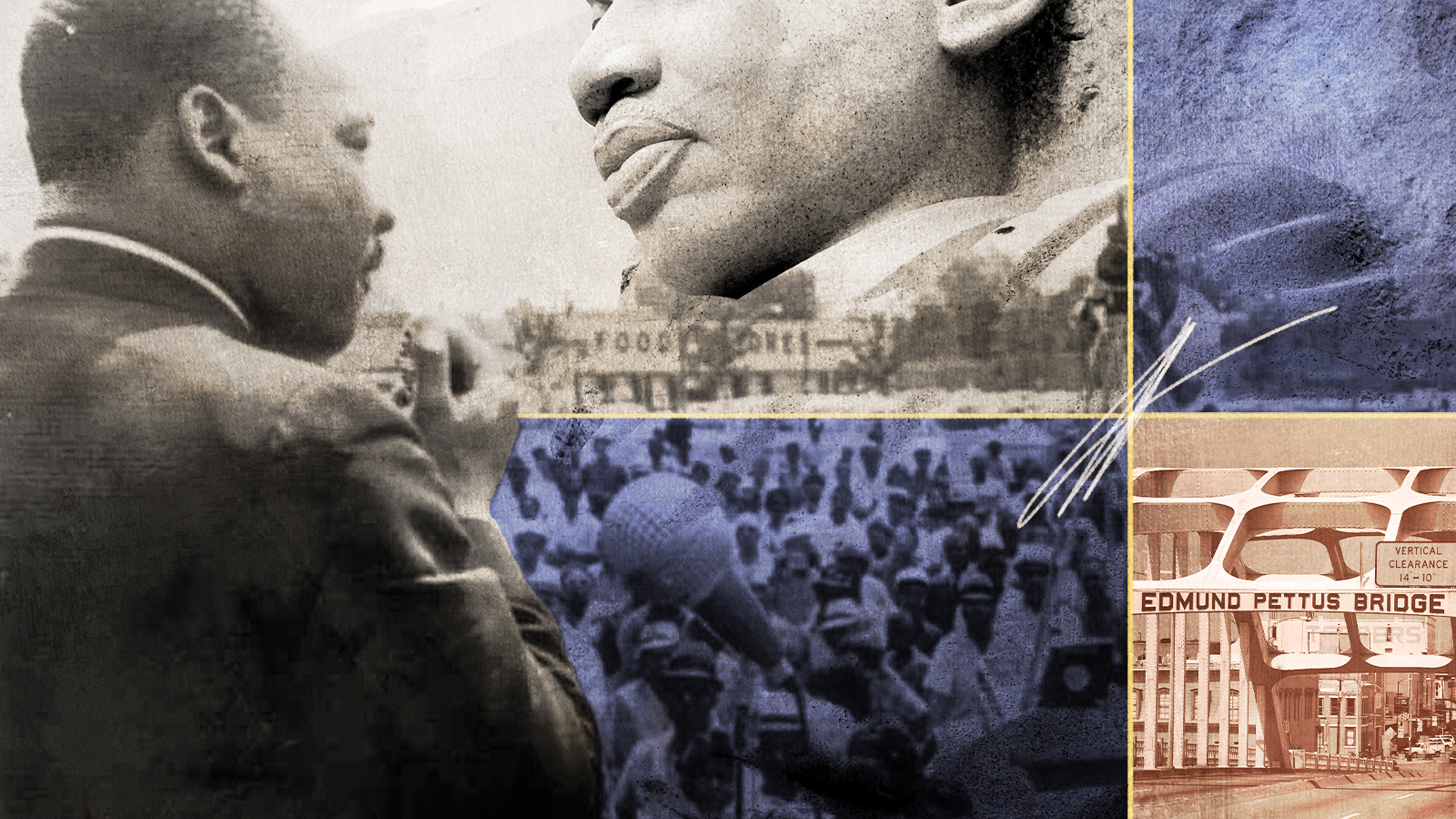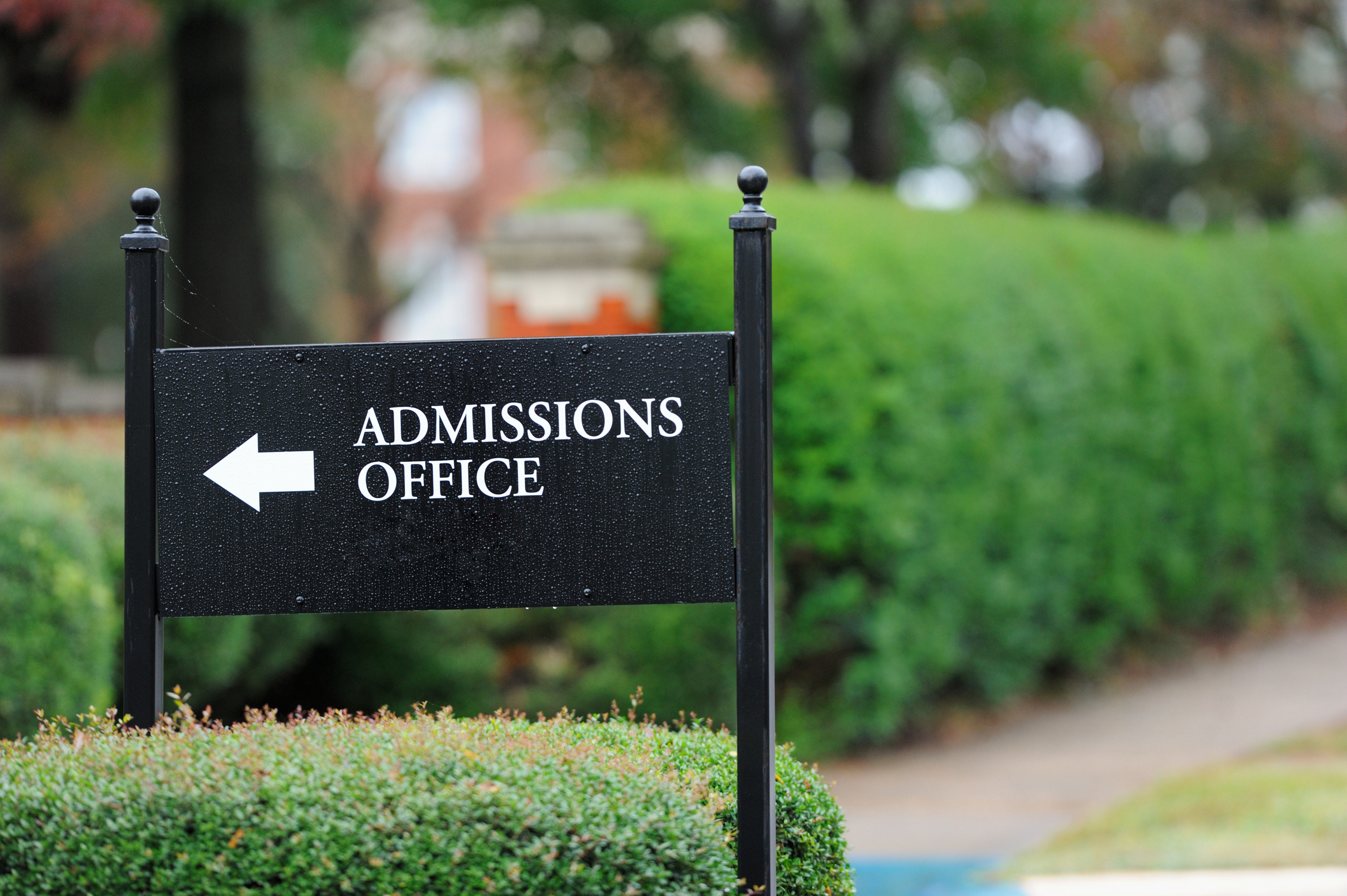The history of Martin Luther King Jr. Day
The decades-long journey to honor Dr. King with a fully-recognized federal holiday


A free daily email with the biggest news stories of the day – and the best features from TheWeek.com
You are now subscribed
Your newsletter sign-up was successful
On Monday, Jan. 16, Americans observe Martin Luther King Jr. Day, a federal holiday honoring Dr. Martin Luther King Jr.'s legacy as a Civil Rights movement leader and his lifelong dedication to community service. While the whole nation now observes the holiday, the path to designating a day to celebrate King took 15 years of persistence by his supporters.
Here's everything you need to know about how Martin Luther King Jr. Day came to be:
When was the idea for Martin Luther King Jr. Day introduced?
Democratic Michigan Rep. John Conyers was the first to introduce a bill to recognize King's birthday as a national holiday on Apr. 8, 1968, just four days after he was assassinated, according to the National Museum of African American History and Culture (NMAAHC). Congress ignored his initial pleas to pay homage to King's legacy with a holiday, but Conyers was undeterred. He continued to be a prominent advocate for the proposed holiday and reintroduced the legislation every year with the support of the Congressional Black Caucus (CBC), which Conyers co-founded. A 2009 report in Time magazine said that the King Memorial Center in Atlanta, which was founded around the same time, sponsored the first annual observance of King's birthday, Jan. 15, in 1969.
The Week
Escape your echo chamber. Get the facts behind the news, plus analysis from multiple perspectives.

Sign up for The Week's Free Newsletters
From our morning news briefing to a weekly Good News Newsletter, get the best of The Week delivered directly to your inbox.
From our morning news briefing to a weekly Good News Newsletter, get the best of The Week delivered directly to your inbox.
Conyers and the CBC were not the only groups working on getting the holiday recognized by Congress. Reverend Ralph Abernathy, who became the leader of the Southern Christian Leadership Conference (SCLC) after King was killed, collected letters of support and directed a drive to collect signed petitions supporting the idea. By April 1971, the SCLC collected over 3 million signatures, and Abernathy led a march on Washington to deliver the signatures and letters to Congress.
In one letter archived in the records of the House Judiciary Committee, Rosemary Ryan of Kansas City, Kansas, wrote, "I want Dr. King's birthday declared a national holiday to remind the whole world over, for centuries to come, that Martin Luther King Jr. suffered and sacrificed his life so that all mankind may one day, live together in brotherhood."
The bill finally came to a vote in the House in 1979 on what would have been King's 50th birthday. Still, despite having a petition with 300,000 signatures in support, support from President Jimmy Carter, and testimonials from King's widow, Coretta Scott King, the bill was blocked by five votes in the House, per the NMAAHC. Republican Missouri Rep. Gene Taylor helmed the bill's opposition, citing the costs of a new federal holiday and the tradition of excluding private citizens from being recognized with a public holiday.
How did it become an official national holiday?
Despite failing to pass in the House, public support for the bill continued to grow. Singer and songwriter Stevie Wonder became a vocal advocate for the bill and worked hard to spread the message. His 1980 album "Hotter Than July" featured the song "Happy Birthday," an ode to King's vision and a rallying cry for a national day of recognition.
A free daily email with the biggest news stories of the day – and the best features from TheWeek.com
The lyrics include, "I just never understood / How a man who died for good / Could not have a day that would / Be set aside for his recognition ... in peace, our hearts will sing / Thanks to Martin Luther King." Wonder made regular appearances alongside Coretta Scott King at rallies and ended a four-month tour with a benefit concert on the National Mall 18 years after King gave his famous "I Have a Dream" speech there.
The bill finally made it to the House floor again in 1983, fifteen years after King's assassination. The CBC, Coretta Scott King, and Wonder gathered six million signatures for a petition to honor King with a federal holiday. The House passed the legislation with a final vote of 338 to 90 but was met with opposition in the Senate. Republican North Carolina Sen. Jesse Helms led the charge to dismiss the bill, arguing that any person against the holiday would be labeled a racist. Helms warned his fellow senators against being pressured into elevating King "the same level as the father of our country and above the many other Americans whose achievements approach that of Washington's," per Time.
In Oct. 1983, Helms submitted a 300-page report containing allegations that King was connected to communists, which was dismissed by Democratic New York Rep. Daniel Patrick Moynihan as a "packet of filth." Helms requested to have FBI surveillance tapes of King unsealed, but District Judge John Lewis Smith Jr. denied the request. The bill was successfully passed in the Senate after a two-day debate, and President Ronald Regan signed it into law on Nov. 2, 1983.
"I would have preferred a non-holiday in King's honor but since they seem bent on making it a national holiday, I believe the symbolism of that day is important enough that I will sign that legislation when it reaches my desk," Reagan said at the time, per the NMAAHC.
The first Martin Luther King Jr. Day was celebrated on Jan. 20, 1986, but it took years for all fifty states to observe it. According to the History Channel, several southern states combined the day with celebrations of Confederate leader Robert E. Lee, born on Jan. 19. It wasn't until 2000 that all 50 states observed the holiday.
When did it become a national day of service?
The holiday became recognized as a national day of service after President Bill Clinton signed the King Holiday and Service Act into law on August 23, 1994. The bill was co-authored by Rep. John Lewis and former Pennsylvania Senator Harris Wofford, inspired by King's dedication to service. They proposed the legislation to encourage Americans to make the holiday "a day on, not a day off" by finding a common cause to give back to their communities. AmeriCorps has nationally coordinated the day of service since its inception in 1994.
Theara Coleman has worked as a staff writer at The Week since September 2022. She frequently writes about technology, education, literature and general news. She was previously a contributing writer and assistant editor at Honeysuckle Magazine, where she covered racial politics and cannabis industry news.
-
 The ‘ravenous’ demand for Cornish minerals
The ‘ravenous’ demand for Cornish mineralsUnder the Radar Growing need for critical minerals to power tech has intensified ‘appetite’ for lithium, which could be a ‘huge boon’ for local economy
-
 Why are election experts taking Trump’s midterm threats seriously?
Why are election experts taking Trump’s midterm threats seriously?IN THE SPOTLIGHT As the president muses about polling place deployments and a centralized electoral system aimed at one-party control, lawmakers are taking this administration at its word
-
 ‘Restaurateurs have become millionaires’
‘Restaurateurs have become millionaires’Instant Opinion Opinion, comment and editorials of the day
-
 The video game franchises with the best lore
The video game franchises with the best loreThe Week Recommends The developers behind these games used their keen attention to detail and expert storytelling abilities to create entire universes
-
 The buzziest movies from the 2023 Venice Film Festival
The buzziest movies from the 2023 Venice Film FestivalSpeed Read Which would-be Oscar contenders got a boost?
-
 America's troubling school bus driver shortage
America's troubling school bus driver shortageSpeed Read Kids are heading back to school, but they might be having trouble getting a ride
-
 5 college admissions trends to watch out for this year
5 college admissions trends to watch out for this yearSpeed Read College advisers and admissions experts say these trends will shape the 2023-2024 admissions cycle
-
 What's going on with Fyre Festival II?
What's going on with Fyre Festival II?Speed Read Convicted felon Billy McFarland claims the music festival will happen, for real this time
-
 The answer to rising home prices: smaller homes
The answer to rising home prices: smaller homesSpeed Read Builders are opting for fewer rooms and more attached styles as frustrated homebuyers look for affordable options
-
 5 illuminating books about the video game industry
5 illuminating books about the video game industrySpeed Read Cozy up with a few reads that dig into some of the most fascinating parts of video game history
-
 Everything we know about the final season of 'Stranger Things'
Everything we know about the final season of 'Stranger Things'Speed Read The Netflix hit will turn things up to eleven in its final bow ... eventually
